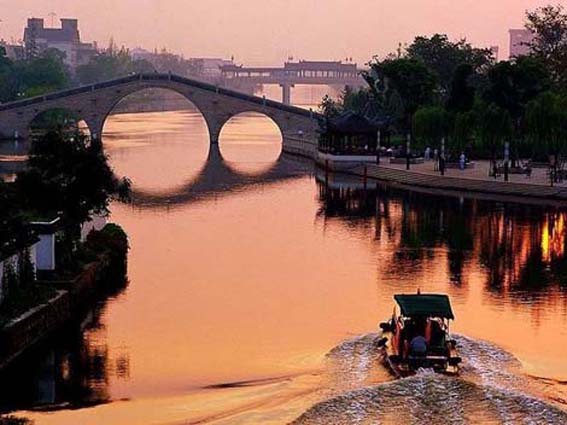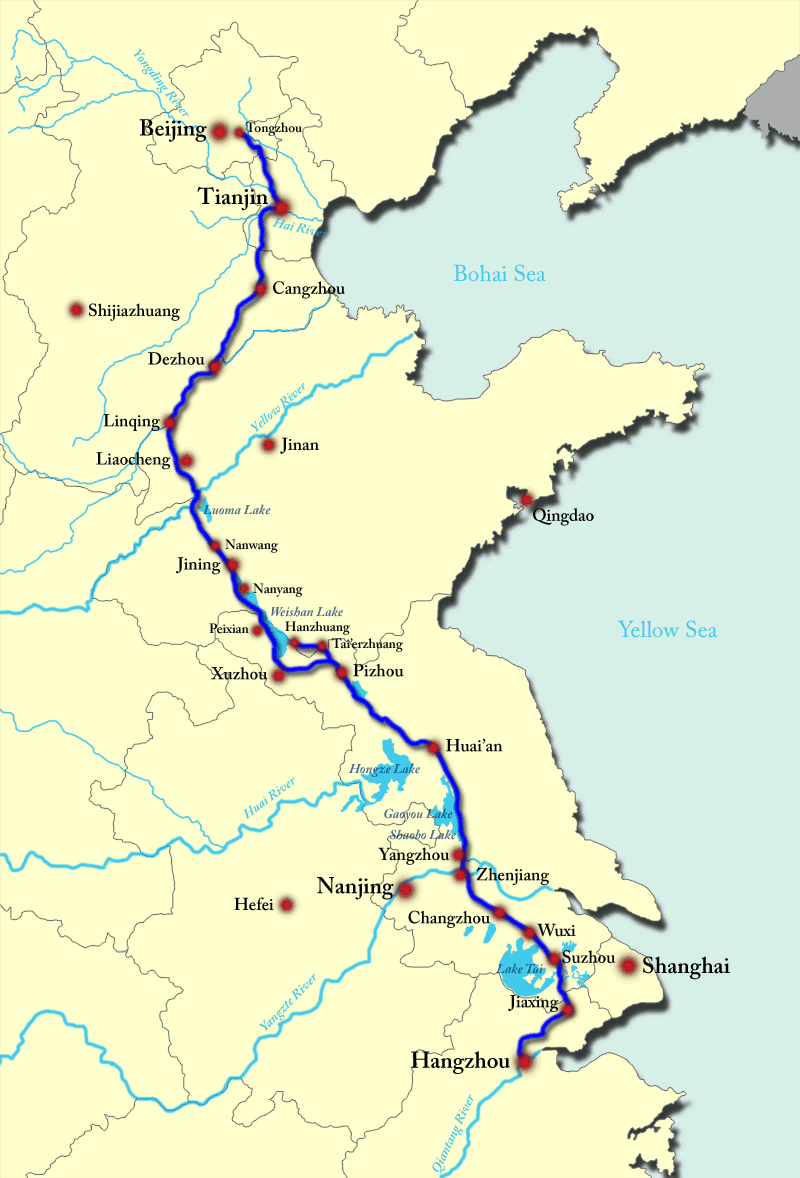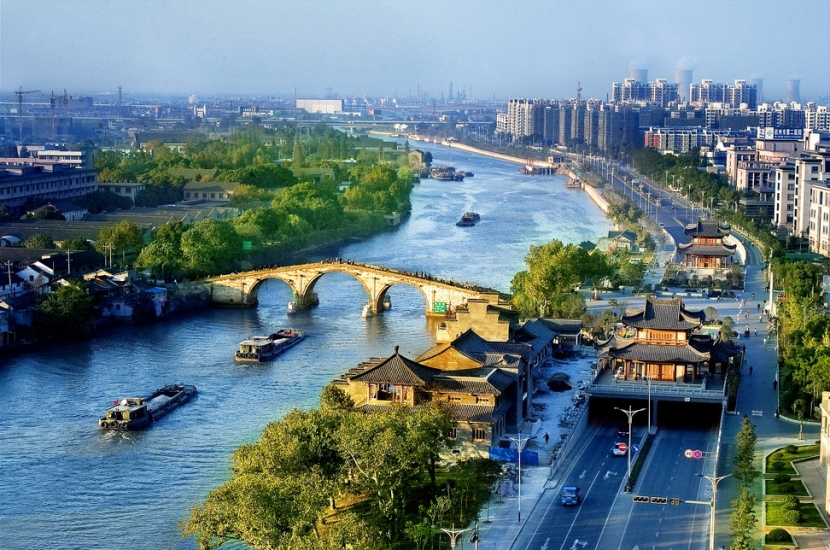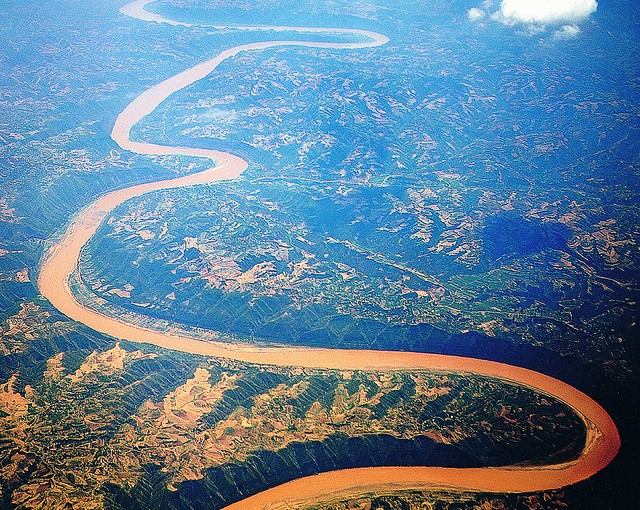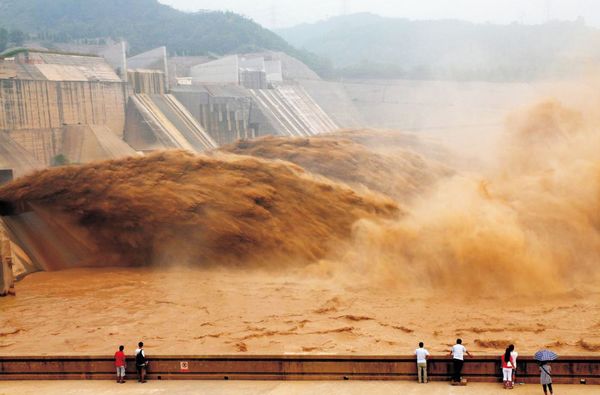On the 70th anniversary of the end of the war, we must calmly reflect upon the road to war, the path we have taken since it ended, and the era of the 20th century. We must learn from the lessons of history the wisdom for our future.
More than one hundred years ago, vast colonies possessed mainly by the Western powers stretched out across the world. With their overwhelming supremacy in technology, waves of colonial rule surged toward Asia in the 19th century. There is no doubt that the resultant sense of crisis drove Japan forward to achieve modernization. Japan built a constitutional government earlier than any other nation in Asia. The country preserved its independence throughout. The Japan-Russia War gave encouragement to many people under colonial rule from Asia to Africa.
After World War I, which embroiled the world, the movement for self-determination gained momentum and put brakes on colonization that had been underway. It was a horrible war that claimed as many as ten million lives. With a strong desire for peace stirred in them, people founded the League of Nations and brought forth the General Treaty for Renunciation of War. There emerged in the international community a new tide of outlawing war itself.
At the beginning, Japan, too, kept steps with other nations. However, with the Great Depression setting in and the Western countries launching economic blocs by involving colonial economies, Japan’s economy suffered a major blow. In such circumstances, Japan’s sense of isolation deepened and it attempted to overcome its diplomatic and economic deadlock through the use of force. Its domestic political system could not serve as a brake to stop such attempts. In this way, Japan lost sight of the overall trends in the world.
With the Manchurian Incident, followed by the withdrawal from the League of Nations, Japan gradually transformed itself into a challenger to the new international order that the international community sought to establish after tremendous sacrifices. Japan took the wrong course and advanced along the road to war.
And, seventy years ago, Japan was defeated.
On the 70th anniversary of the end of the war, I bow my head deeply before the souls of all those who perished both at home and abroad. I express my feelings of profound grief and my eternal, sincere condolences.
More than three million of our compatriots lost their lives during the war: on the battlefields worrying about the future of their homeland and wishing for the happiness of their families; in remote foreign countries after the war, in extreme cold or heat, suffering from starvation and disease. The atomic bombings of Hiroshima and Nagasaki, the air raids on Tokyo and other cities, and the ground battles in Okinawa, among others, took a heavy toll among ordinary citizens without mercy.
Also in countries that fought against Japan, countless lives were lost among young people with promising futures. In China, Southeast Asia, the Pacific islands and elsewhere that became the battlefields, numerous innocent citizens suffered and fell victim to battles as well as hardships such as severe deprivation of food. We must never forget that there were women behind the battlefields whose honour and dignity were severely injured.
Upon the innocent people did our country inflict immeasurable damage and suffering. History is harsh. What is done cannot be undone. Each and every one of them had his or her life, dream, and beloved family. When I squarely contemplate this obvious fact, even now, I find myself speechless and my heart is rent with the utmost grief.
The peace we enjoy today exists only upon such precious sacrifices. And therein lies the origin of postwar Japan.
We must never again repeat the devastation of war.
Incident, aggression, war — we shall never again resort to any form of the threat or use of force as a means of settling international disputes. We shall abandon colonial rule forever and respect the right of self-determination of all peoples throughout the world.
With deep repentance for the war, Japan made that pledge. Upon it, we have created a free and democratic country, abided by the rule of law, and consistently upheld that pledge never to wage a war again. While taking silent pride in the path we have walked as a peace-loving nation for as long as seventy years, we remain determined never to deviate from this steadfast course.
Japan has repeatedly expressed the feelings of deep remorse and heartfelt apology for its actions during the war. In order to manifest such feelings through concrete actions, we have engraved in our hearts the histories of suffering of the people in Asia as our neighbours: those in Southeast Asian countries such as Indonesia and the Philippines, and Taiwan, the Republic of Korea and China, among others; and we have consistently devoted ourselves to the peace and prosperity of the region since the end of the war.
Such position articulated by the previous cabinets will remain unshakable into the future.
However, no matter what kind of efforts we may make, the sorrows of those who lost their family members and the painful memories of those who underwent immense sufferings by the destruction of war will never be healed.
Thus, we must take to heart the following.
The fact that more than six million Japanese repatriates managed to come home safely after the war from various parts of the Asia-Pacific and became the driving force behind Japan’s postwar reconstruction; the fact that nearly three thousand Japanese children left behind in China were able to grow up there and set foot on the soil of their homeland again; and the fact that former POWs of the United States, the United Kingdom, the Netherlands, Australia and other nations have visited Japan for many years to continue praying for the souls of the war dead on both sides.
How much emotional struggle must have existed and what great efforts must have been necessary for the Chinese people who underwent all the sufferings of the war and for the former POWs who experienced unbearable sufferings caused by the Japanese military in order for them to be so tolerant nevertheless?
That is what we must turn our thoughts to reflect upon.
Thanks to such manifestation of tolerance, Japan was able to return to the international community in the postwar era. Taking this opportunity of the 70th anniversary of the end of the war, Japan would like to express its heartfelt gratitude to all the nations and all the people who made every effort for reconciliation.
In Japan, the postwar generations now exceed eighty per cent of its population. We must not let our children, grandchildren, and even further generations to come, who have nothing to do with that war, be predestined to apologize. Still, even so, we Japanese, across generations, must squarely face the history of the past. We have the responsibility to inherit the past, in all humbleness, and pass it on to the future.
Our parents’ and grandparents’ generations were able to survive in a devastated land in sheer poverty after the war. The future they brought about is the one our current generation inherited and the one we will hand down to the next generation. Together with the tireless efforts of our predecessors, this has only been possible through the goodwill and assistance extended to us that transcended hatred by a truly large number of countries, such as the United States, Australia, and European nations, which Japan had fiercely fought against as enemies.
We must pass this down from generation to generation into the future. We have the great responsibility to take the lessons of history deeply into our hearts, to carve out a better future, and to make all possible efforts for the peace and prosperity of Asia and the world.
We will engrave in our hearts the past, when Japan attempted to break its deadlock with force. Upon this reflection, Japan will continue to firmly uphold the principle that any disputes must be settled peacefully and diplomatically based on the respect for the rule of law and not through the use of force, and to reach out to other countries in the world to do the same. As the only country to have ever suffered the devastation of atomic bombings during war, Japan will fulfil its responsibility in the international community, aiming at the non-proliferation and ultimate abolition of nuclear weapons.
We will engrave in our hearts the past, when the dignity and honour of many women were severely injured during wars in the 20th century. Upon this reflection, Japan wishes to be a country always at the side of such women’s injured hearts. Japan will lead the world in making the 21st century an era in which women’s human rights are not infringed upon.
We will engrave in our hearts the past, when forming economic blocs made the seeds of conflict thrive. Upon this reflection, Japan will continue to develop a free, fair and open international economic system that will not be influenced by the arbitrary intentions of any nation. We will strengthen assistance for developing countries, and lead the world toward further prosperity. Prosperity is the very foundation for peace. Japan will make even greater efforts to fight against poverty, which also serves as a hotbed of violence, and to provide opportunities for medical services, education, and self-reliance to all the people in the world.
We will engrave in our hearts the past, when Japan ended up becoming a challenger to the international order. Upon this reflection, Japan will firmly uphold basic values such as freedom, democracy, and human rights as unyielding values and, by working hand in hand with countries that share such values, hoist the flag of “Proactive Contribution to Peace,” and contribute to the peace and prosperity of the world more than ever before.
Heading toward the 80th, the 90th and the centennial anniversary of the end of the war, we are determined to create such a Japan together with the Japanese people.
August 14, 2015
Shinzo Abe, Prime Minister of Japa
終戦七十年を迎えるにあたり、先の大戦への道のり、戦後の歩み、二十世紀という時代を、私たちは、心静かに振り返り、その歴史の教訓の中から、未来への知恵を学ばなければならないと考えます。
百年以上前の世界には、西洋諸国を中心とした国々の広大な植民地が、広がっていました。圧倒的な技術優位を背景に、植民地支配の波は、十九世紀、アジアにも押し寄せました。その危機感が、日本にとって、近代化の原動力となったことは、間違いありません。アジアで最初に立憲政治を打ち立て、独立を守り抜きました。日露戦争は、植民地支配のもとにあった、多くのアジアやアフリカの人々を勇気づけました。
世界を巻き込んだ第一次世界大戦を経て、民族自決の動きが広がり、それまでの植民地化にブレーキがかかりました。この戦争は、一千万人もの戦死者を出す、悲惨な戦争でありました。人々は「平和」を強く願い、国際連盟を創設し、不戦条約を生み出しました。戦争自体を違法化する、新たな国際社会の潮流が生まれました。
当初は、日本も足並みを揃えました。しかし、世界恐慌が発生し、欧米諸国が、植民地経済を巻き込んだ、経済のブロック化を進めると、日本経済は大きな打撃を受けました。その中で日本は、孤立感を深め、外交的、経済的な行き詰まりを、力の行使によって解決しようと試みました。国内の政治システムは、その歯止めたりえなかった。こうして、日本は、世界の大勢を見失っていきました。
満州事変、そして国際連盟からの脱退。日本は、次第に、国際社会が壮絶な犠牲の上に築こうとした「新しい国際秩序」への「挑戦者」となっていった。進むべき針路を誤り、戦争への道を進んで行きました。
そして七十年前。日本は、敗戦しました。
戦後七十年にあたり、国内外に斃れたすべての人々の命の前に、深く頭を垂れ、痛惜の念を表すとともに、永劫の、哀悼の誠を捧げます。
先の大戦では、三百万余の同胞の命が失われました。祖国の行く末を案じ、家族の幸せを願いながら、戦陣に散った方々。終戦後、酷寒の、あるいは灼熱の、遠い異郷の地にあって、飢えや病に苦しみ、亡くなられた方々。広島や長崎での原爆投下、東京をはじめ各都市での爆撃、沖縄における地上戦などによって、たくさんの市井の人々が、無残にも犠牲となりました。
戦火を交えた国々でも、将来ある若者たちの命が、数知れず失われました。中国、東南アジア、太平洋の島々など、戦場となった地域では、戦闘のみならず、食糧難などにより、多くの無辜の民が苦しみ、犠牲となりました。戦場の陰には、深く名誉と尊厳を傷つけられた女性たちがいたことも、忘れてはなりません。
何の罪もない人々に、計り知れない損害と苦痛を、我が国が与えた事実。歴史とは実に取り返しのつかない、苛烈なものです。一人ひとりに、それぞれの人生があり、夢があり、愛する家族があった。この当然の事実をかみしめる時、今なお、言葉を失い、ただただ、断腸の念を禁じ得ません。
これほどまでの尊い犠牲の上に、現在の平和がある。これが、戦後日本の原点であります。
二度と戦争の惨禍を繰り返してはならない。
事変、侵略、戦争。いかなる武力の威嚇や行使も、国際紛争を解決する手段としては、もう二度と用いてはならない。植民地支配から永遠に訣別し、すべての民族の自決の権利が尊重される世界にしなければならない。
先の大戦への深い悔悟の念と共に、我が国は、そう誓いました。自由で民主的な国を創り上げ、法の支配を重んじ、ひたすら不戦の誓いを堅持してまいりました。七十年間に及ぶ平和国家としての歩みに、私たちは、静かな誇りを抱きながら、この不動の方針を、これからも貫いてまいります。
我が国は、先の大戦における行いについて、繰り返し、痛切な反省と心からのお詫びの気持ちを表明してきました。その思いを実際の行動で示すため、インドネシア、フィリピンはじめ東南アジアの国々、台湾、韓国、中国など、隣人であるアジアの人々が歩んできた苦難の歴史を胸に刻み、戦後一貫して、その平和と繁栄のために力を尽くしてきました。
こうした歴代内閣の立場は、今後も、揺るぎないものであります。
ただ、私たちがいかなる努力を尽くそうとも、家族を失った方々の悲しみ、戦禍によって塗炭の苦しみを味わった人々の辛い記憶は、これからも、決して癒えることはないでしょう。
ですから、私たちは、心に留めなければなりません。
戦後、六百万人を超える引揚者が、アジア太平洋の各地から無事帰還でき、日本再建の原動力となった事実を。中国に置き去りにされた三千人近い日本人の子どもたちが、無事成長し、再び祖国の土を踏むことができた事実を。米国や英国、オランダ、豪州などの元捕虜の皆さんが、長年にわたり、日本を訪れ、互いの戦死者のために慰霊を続けてくれている事実を。
戦争の苦痛を嘗め尽くした中国人の皆さんや、日本軍によって耐え難い苦痛を受けた元捕虜の皆さんが、それほど寛容であるためには、どれほどの心の葛藤があり、いかほどの努力が必要であったか。
そのことに、私たちは、思いを致さなければなりません。
寛容の心によって、日本は、戦後、国際社会に復帰することができました。戦後七十年のこの機にあたり、我が国は、和解のために力を尽くしてくださった、すべての国々、すべての方々に、心からの感謝の気持ちを表したいと思います。
日本では、戦後生まれの世代が、今や、人口の八割を超えています。あの戦争には何ら関わりのない、私たちの子や孫、そしてその先の世代の子どもたちに、謝罪を続ける宿命を背負わせてはなりません。しかし、それでもなお、私たち日本人は、世代を超えて、過去の歴史に真正面から向き合わなければなりません。謙虚な気持ちで、過去を受け継ぎ、未来へと引き渡す責任があります。
私たちの親、そのまた親の世代が、戦後の焼け野原、貧しさのどん底の中で、命をつなぐことができた。そして、現在の私たちの世代、さらに次の世代へと、未来をつないでいくことができる。それは、先人たちのたゆまぬ努力と共に、敵として熾烈に戦った、米国、豪州、欧州諸国をはじめ、本当にたくさんの国々から、恩讐を越えて、善意と支援の手が差しのべられたおかげであります。
そのことを、私たちは、未来へと語り継いでいかなければならない。歴史の教訓を深く胸に刻み、より良い未来を切り拓いていく、アジア、そして世界の平和と繁栄に力を尽くす。その大きな責任があります。
私たちは、自らの行き詰まりを力によって打開しようとした過去を、この胸に刻み続けます。だからこそ、我が国は、いかなる紛争も、法の支配を尊重し、力の行使ではなく、平和的・外交的に解決すべきである。この原則を、これからも堅く守り、世界の国々にも働きかけてまいります。唯一の戦争被爆国として、核兵器の不拡散と究極の廃絶を目指し、国際社会でその責任を果たしてまいります。
私たちは、二十世紀において、戦時下、多くの女性たちの尊厳や名誉が深く傷つけられた過去を、この胸に刻み続けます。だからこそ、我が国は、そうした女性たちの心に、常に寄り添う国でありたい。二十一世紀こそ、女性の人権が傷つけられることのない世紀とするため、世界をリードしてまいります。
私たちは、経済のブロック化が紛争の芽を育てた過去を、この胸に刻み続けます。だからこそ、我が国は、いかなる国の恣意にも左右されない、自由で、公正で、開かれた国際経済システムを発展させ、途上国支援を強化し、世界の更なる繁栄を牽引してまいります。繁栄こそ、平和の礎です。暴力の温床ともなる貧困に立ち向かい、世界のあらゆる人々に、医療と教育、自立の機会を提供するため、一層、力を尽くしてまいります。
私たちは、国際秩序への挑戦者となってしまった過去を、この胸に刻み続けます。だからこそ、我が国は、自由、民主主義、人権といった基本的価値を揺るぎないものとして堅持し、その価値を共有する国々と手を携えて、「積極的平和主義」の旗を高く掲げ、世界の平和と繁栄にこれまで以上に貢献してまいります。
終戦八十年、九十年、さらには百年に向けて、そのような日本を、国民の皆様と共に創り上げていく。その決意であります。
平成二十七年八月十四日
内閣総理大臣 安倍 晋三
 日本語
日本語 English
English 中国語
中国語
